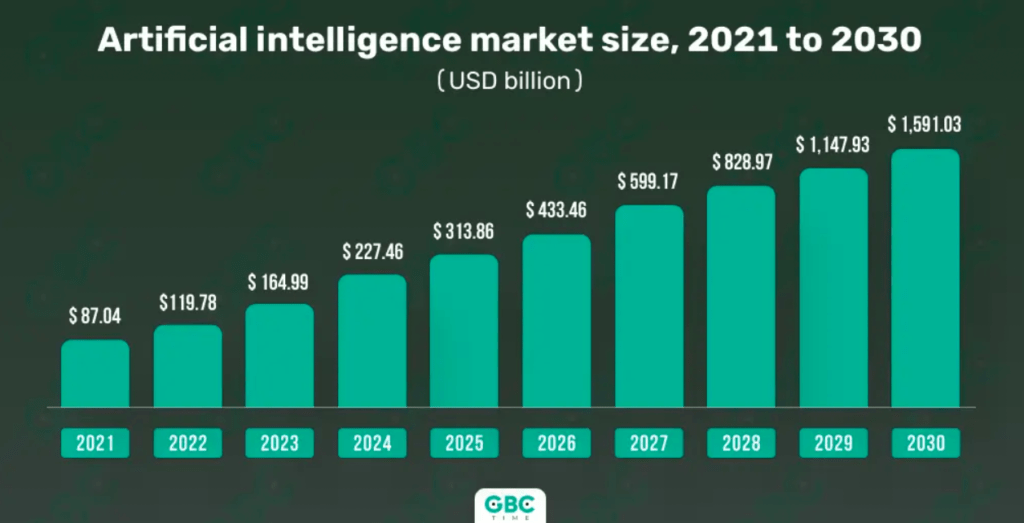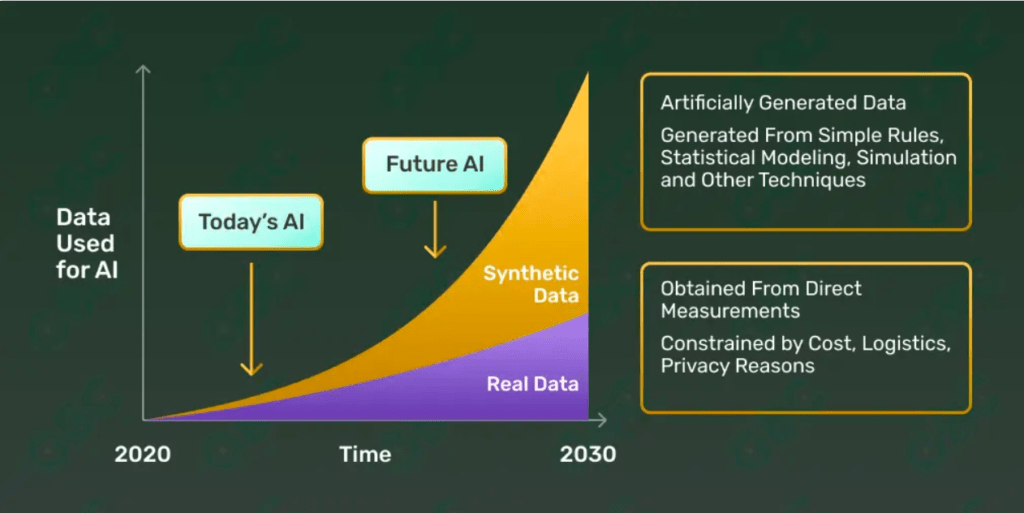Throughout its history, the casino industry has consistently embraced technological advancements. From the initial emergence of slot machines and table games to the contemporary era of online gaming, casinos have demonstrated an unwavering commitment to integrating new technologies, and artificial intelligence (AI) is no exception.
When we hear about AI, various questions arise. Is there a potential danger of AI controlling people in the future? Does AI pose a threat to the job market? Is it ethical to use and develop AI?
We will delve into these topics to separate fact from fiction and examine the impact of artificial intelligence on the gambling industry. Throughout its history, the casino industry has consistently embraced technological advancements. From the initial emergence of table games and slot machines to the contemporary era of online gaming, artificial intelligence is only one of several cutting-edge technologies that casinos have consistently used.
Artificial Intelligence and Ethical Issues: Ensuring Responsible AI Development
Because artificial intelligence is developing rapidly and has a lot of pitfalls, most of us have become concerned about the technology’s power and its ethical considerations.
Joseph Fuller, professor of management practice at Harvard Business School, who is co-responsible for Managing the Future of Work, said in The Harvard Gazette:
“Virtually every big company has multiple AI systems and counts the deployment of AI as integral to their strategy.”
In the past, it was widely believed that the future of artificial intelligence would mostly concentrate on automating routine, repetitive jobs that required little decision-making. However, thanks to improvements in computer power and the availability of extensive datasets, AI has progressed rapidly, becoming very sophisticated. Machine learning, a prominent branch of AI known for its capacity to process and evaluate enormous amounts of data while continuously improving its performance, has brought about significant transformations across numerous industries, including the gambling industry.
Important Aspects of Ethics in Artificial Intelligence
- Addressing biases is crucial to prevent discrimination or unfair treatment in AI systems;
- Transparency is another vital factor. Users should understand how decisions are made by AI algorithms;
- Protecting privacy and data is also essential to handle personal information responsibly and preventing abuse or illegal access;
- Promoting fairness and accountability involves designing AI systems that are honest and equitable and avoid producing unjust outcomes. Considering the societal impact of AI, such as job displacement, it is necessary to mitigate negative consequences and ensure a just transition;
- Anticipating the long-term implications of AI, including economic, political, and cultural dimensions, is vital to make sure AI reflects human ideals and benefits society.
How to control ethical aspect of AI
The regulation of AI usage is a topic of debate due to its immense power and expected widespread adoption. Nevertheless, there needs to be a consensus on the approach or the governing body responsible for establishing rules.
Companies involved in AI development or utilization mostly self-regulate, based on the market’s dynamics and current legislation. Adverse consumer and shareholder reactions and the pressure to attract skilled AI professionals serve as incentives to maintain ethical practices.
However, there are dissenting voices who argue against self-regulation. According to political philosopher Michael Sandel, AI not only mimics human prejudices but also lends them a sense of scientific legitimacy, creating the illusion of accurate predictions and judgments.
But it’s more likely that in the future government will take control over AI and potentially manage possible problems with it, for instance, with the help of regulatory cases. For now, the European Union already has strict regulations governing data privacy and EU guidelines on ethics in artificial intelligence.
Here are the key EU requirements for achieving trustworthy AI:
- human agency and oversight;
- robustness and safety;
- privacy and data governance;
- transparency;
- diversity, nondiscrimination, and fairness;
- societal and environmental well-being;
- accountability.
How AI can Transform Gambling Environment
AI has the potential to revolutionize the casino industry. It can personalize player experiences, optimize operations, and enhance security. On the other hand, this innovation has risks, like job loss, discrimination, addiction, gambling, and more. Let’s discuss AI use in a gambling environment: its benefits and drawbacks.
Advantages of employing AI
Superior Analytics and Predictive Modeling
AI systems can examine past data to determine schemes, trends, and insights that aid decision-making. This can be particularly useful in optimizing casino operations, such as predicting player demand, managing resources efficiently, and improving revenue management.
Better Customer Service
AI can detect behavioral patterns that indicate problem gambling and offer timely intervention or support. It can also automate responses to customer queries, enabling support agents to focus on more intricate issues. Furthermore, AI can assist in monitoring social media for client feedback and sentiment, allowing businesses to address negative publicity promptly. Regardless of whether a company has an online or offline presence, maintaining outstanding customer service is essential, and AI may play a significant part in guaranteeing customer happiness.
Personalized Player Experiences
AI can analyze vast amounts of player data to create personalized experiences tailored to individual preferences. By understanding a player’s behavior, preferences, and betting patterns, AI can offer customized game recommendations, advertisements, bonuses, and rewards, ultimately enhancing the player experience.
New Games
AI is actively employed to craft gaming experiences to make them increasingly lifelike and captivating. One notable application is implementing AI-driven virtual reality (VR) technology by certain casinos. By leveraging this technology, realistic casino settings can be created, enabling players to venture into immersive environments. This grants players a glimpse into the authentic casino atmosphere, all from the comfort of their own homes, eliminating the need for physical visiting.
Fraud Prevention and Player Protection
The gambling industry is a prime target for offline and online criminals. AI tools provide enhanced fraud prevention and player protection services, fortifying security protocols. By analyzing player and transaction behavior, AI algorithms can identify potential cheating, money laundering, or unauthorized access, enhancing overall security measures within the casino environment. Furthermore, AI helps detect and address problem gambling tendencies, safeguarding vulnerable players.
Chatbots
Chatbots have already found their place in online casinos, giving helpful guides for games, bonuses, and promotions. They are also adept at directing players to specific sections of the site, such as gameplay or deposit and withdrawal options.
Some chatbots are designed to follow a specific behavior pattern, prompting customers to answer questions before delivering tailored recommendations. The client experience is improved by other chatbots’ customizable answers and simplifying navigation within the casino environment.
Cloud Computing
As you know, the foundation of advanced AI technologies like Machine Learning and Deep Learning lies in harnessing data, and this connection is strengthened through cloud computing. An immersive virtual environment is created by utilizing the cloud — a shared resource that hosts technology for various organizations. This environment enables AI to leverage data for training and refining algorithms that decipher complex information.
Advanced Payment System
AI revolutionizes the way transactions are processed. Artificial intelligence enables streamlined transactions, reducing wait times for withdrawals. This particular technology assesses transaction risks and ensures personalized experiences by analyzing user data. Predictive analytics derived from AI-driven insights optimize payment processes and inform business strategies.
Risks of using AI
Jobs Loss
The loss of jobs and employment prospects will be one of the most significant adverse effects AI will have on the gambling sector in the coming years. While AI is still on the way to establishing itself in the gambling sector, its effects are already pervasive. AI can perform a lot of routine tasks that people often perform. A significant amount of low-level labor will be replaced by AI in the following years, leading to numerous job losses.
Bias and Discrimination
Biases contained in the training data might be inherited by AI systems, resulting in discriminating results. In domains like customer decision-making or profiling, prejudices already held may be strengthened by AI algorithms if the issue is not effectively addressed, leading to unfair treatment.
Security and Privacy Concerns
Even though AI can positively influence on the secure system of casinos, hackers may target casinos’ infrastructure to obtain consumer data without authorization or manipulate algorithms for their advantage. To address security and privacy concerns effectively, the casino industry should collaborate with cybersecurity experts, privacy advocates, and regulatory bodies.
Lack of Human Oversight
Over-reliance on AI mechanisms without sufficient human oversight can lead to errors or unintended consequences. It is essential to balance automation and human involvement to avoid possible dangers of artificial intelligence decision-making.
Addiction and Problem Gambling
AI-powered systems can enhance player engagement and customization, which may increase the risk of addiction and problem gambling behaviors. Casinos must responsibly implement AI technologies to monitor and address potential negative impacts on vulnerable players.
Reliance on Data Accuracy
Excessive dependence on AI systems can present challenges, particularly if they have limitations or vulnerabilities. If an AI system fails or makes incorrect decisions, the consequences can be significant, especially in delicate areas like casinos. Maintaining the reliability and robustness of AI systems is crucial.
Examine the Impact of AI on the Casino Job Market and the Future of Work
While AI technology has many advantages, like automation and increased operational effectiveness, it also presents problems and the possibility of job disruptions.
As we discussed earlier, job loss is the main problem that can cause AI. AI can automate routines, leading to job displacement in specific areas like data entry, customer service, and game operations.
However, it produces new work opportunities, so the future of work in the casino industry will likely involve a shift in professional roles and required skill sets.
For example, AI could help recruiters to improve the employment process. AI programs could screen resumes, analyze them, and examine candidates’ speech and facial expressions during interviews. Resume-screening software should reduce the possibility of favoritism that comes with human gatekeepers and enable consideration of a larger pool of applicants than would otherwise be possible.
To mitigate potential job loss, the industry must invest in reskilling and upskilling programs to provide staff with the knowledge and abilities needed to collaborate with AI technologies. This can ensure a smooth transition and create a workforce that can effectively leverage the advantages of AI.
And if you are still panicking over AI’s control over people, you shouldn’t. Business and the workplace have always been replete with “all sorts” of biases prohibiting people from closing transactions, obtaining contracts, and landing employment. So, no system is perfect, including those operated by humans.
While AI may change the landscape of jobs in the casino industry, it also presents opportunities for innovation and improved efficiency. Adapting to these changes through upskilling and embracing AI as a complementary tool can help create a thriving workforce in the evolving casino environment.
The Future of Artificial Intelligence
The near future of AI is filled with immense potential, yet it is accompanied by considerable uncertainty.
According to a forecast released by technology research firm IDC, global business spending on AI is projected to reach $50 billion this year and grow to $110 billion annually by 2024. This significant increase is anticipated despite the economic downturn resulting from the COVID-19 epidemic.
The global artificial intelligence (AI) market size is also expected to hit US$ 1.591.03 billion by 2030 with a registered CAGR of 38.1% from 2022 to 2030.

As we look ahead, the potential applications of AI in the gambling realm become even more intricate. AI claims to be able to recognize problem gamblers and anticipate client behavior, going beyond current capabilities. Online casinos use AI to enhance user experiences and mitigate fraud risks. However, in the future, AI has the potential to revolutionize gambling by delivering heightened realism and immersion to the overall gaming experience.
Another critical component of AI that we should talk about is data. Obtaining the correct data is the most crucial and difficult step in creating an effective AI. Real-world data collection is challenging, expensive, and time-consuming. Here’s where synthetic data comes into play.
Synthetic data technology empowers practitioners to create digital data per their specific requirements, in any desired volume, and on demand. It enables the creation of data that precisely aligns with their specifications.
By 2024, as a widely cited Gartner study indicates, approximately 60% of data employed in AI development will be synthetic rather than real. This significant shift towards synthetic data will bring about profound transformations in the economics, ownership, strategic dynamics, and even geopolitical aspects of data. Therefore, it is crucial to recognize and monitor the implications of this emerging technology.
And by 2023, synthetic data is projected to surpass real data in AI models, according to this Gartner’s analysis.

As the prevalence of synthetic data continues to increase in the coming months and years, it will exert a massive influence across various industries, fundamentally altering the economic landscape of data.
Conclusion
AI has the potential to revolutionize the gambling environment, offering superior analytics, personalized player experiences, robust fraud prevention, and improved customer service.
However, implementing AI also has potential dangers including job displacement, biases, security concerns, and ethical dilemmas. Talking about ethical considerations it is one of the key factors in developing AI in the casino sphere, which should be controlled constantly to make the customer experience without any damage.
Working in the casino industry will require shifting roles and skill sets, and investing in reskilling and upskilling programs will be crucial.
Despite some gaps in implementing this innovation, the future of AI appears bright, with notable growth anticipated in worldwide AI spending and market size.
Synthetic data technology is also expected to play a significant role, enabling data generation tailored to specific needs. It is essential to monitor and understand AI’s implications to navigate the gambling industry effectively.
Read more: Identifying the Optimal Online Casinos: Expert Tips













